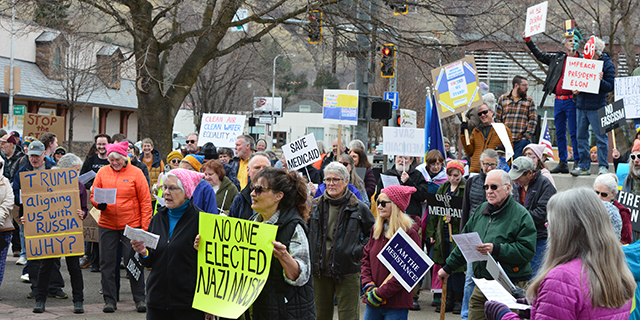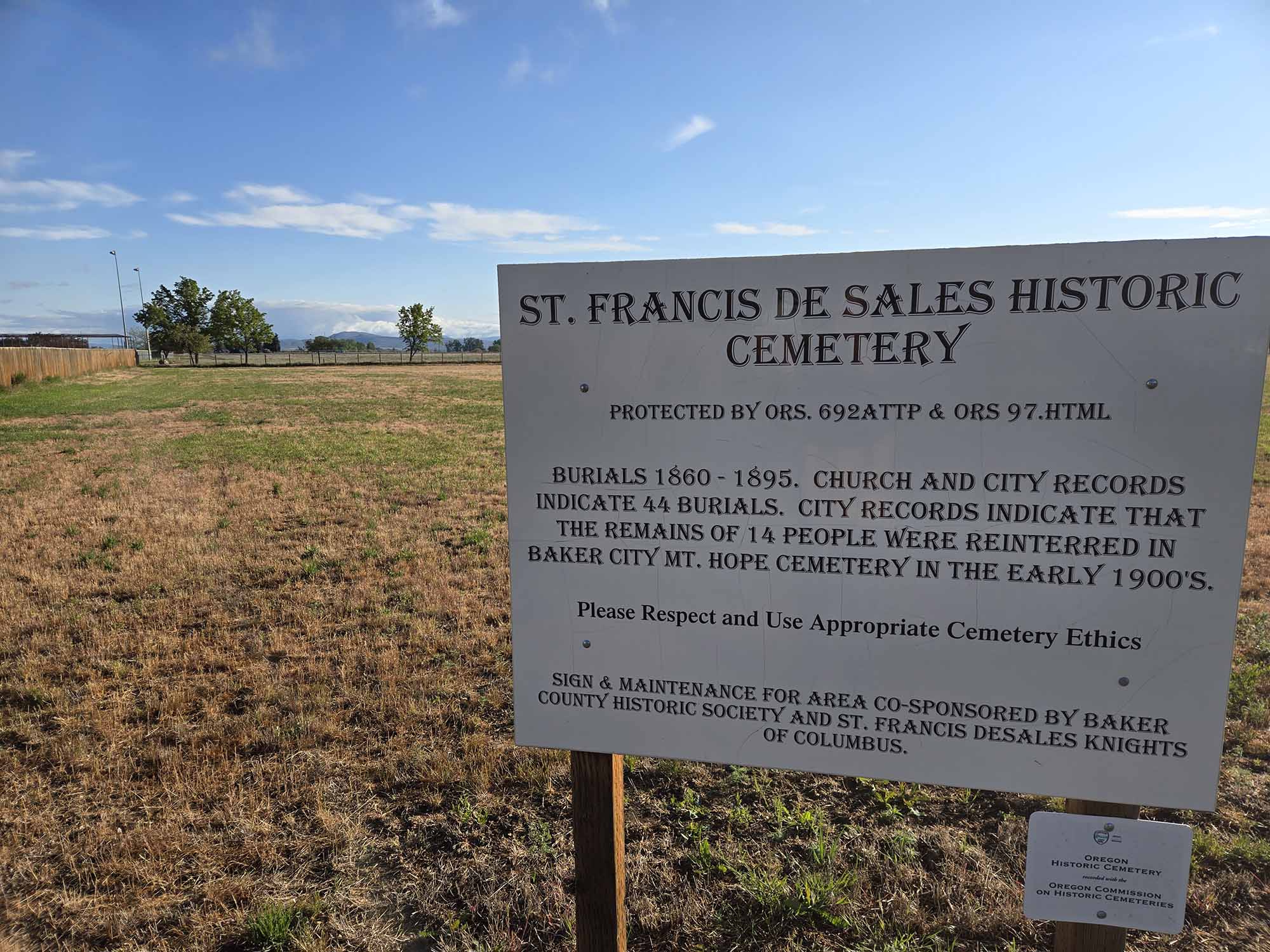Second major protest against Trump planned across Oregon, nationwide
Published 5:00 pm Tuesday, June 10, 2025

- More than 100 people gather March 4, 2025, in La Grande's Max Square to protest President Donald Trump, his administration and his policies. Crowds in La Grande, Pendleton and and more join the largest anti-Trump protest yet on April 5. (Isabella Crowley/The Observer, File)
Thousands of Oregonians are expected to take part in a wave of protests on Saturday, June 14, as part of the nationwide “No Kings” movement — a coordinated series of protests against President Donald Trump and presidential overreach.
More than 1,500 protests are planned across the country, including dozens in Oregon cities large and small.
The official “No Kings” website lists hundreds of protests. Here’s where to find them.
Trending
The demonstrations fall on a significant date: June 14 marks Trump’s 79th birthday, as well as Flag Day, and the 250th anniversary of the U.S. Army. The Trump administration plans to hold a military-style parade in Washington, D.C., to celebrate the event, featuring tanks and other military displays, which critics say is emblematic of Trump’s overreach as president.
Organizers at Indivisible Oregon, the Portland-based chapter of the progressive group Indivisible, say the protests are intended to be peaceful demonstrations, pushing back against the planned display in Washington, D.C., which they call a troubling sign of Trump’s increasing authoritarianism.
“This display of might, before a president who already behaves like a dictator and views the military as his personal foot soldiers, intended to intimidate opponents and solidify his image as a strongman, necessarily elicits comparisons with the worst totalitarian regimes — the Soviet Union, North Korea, China, Iraq, and Nazi Germany,” Indivisible Oregon wrote on its website.
Protests follow months of unrest and political fallout
The June 14 protests are the latest in a series of organized events against Trump and his policies, following Memorial Day rallies, May Day demonstrations, and the April “Hands Off” protests. That earlier wave of actions targeted Trump’s relationship with billionaire Elon Musk, who at the time headed the controversial Department of Government Efficiency. That group slashed federal budgets and shuttered agencies while increasing federal contracts for Musk’s companies.
Much has changed since the spring. Musk left the administration in May following significant financial losses at Tesla, where he is CEO. Since then, Musk has had a dramatic falling out with Trump, at one point writing on his social media platform, X, about the president’s ties to registered sex offender Jeffrey Epstein. Many of those posts were later deleted.
Concerns grow over federal crackdown on dissent
In California, Trump has drawn sharp criticism for deploying Marines and members of the California National Guard to quell protests against immigration officials. Jules Boykoff, a political science professor at Pacific University who studies protest movements, said that decision may inspire others locally to stand up and protest.
Trending
“Some recent events have upped the poignancy of the moment,” Boykoff said. “They have upped the ante politically. It wouldn’t surprise me in the slightest if we saw enormous crowds across the country.”
Gov. Tina Kotek said Monday that she has no plans to deploy the Oregon National Guard this weekend and pushed back strongly against federal interference.
“I am the commander in chief (of the Oregon National Guard),” Kotek told reporters June 9. “We are taking care of our communities. If there is any activity that needs to be taken care of, it will be done by local law enforcement. Right now, all protests have been peaceful and there’s no reason to think that it’ll be otherwise.”
“This is what a healthy democracy looks like”
Boykoff said the Trump administration uses violent police response as a way of crushing dissent and the country is experiencing a unique moment in its history.
“And what a moment it is, where the governor of Oregon has to proactively suggest not wanting the National Guard called out,” Boykoff said. “The fact that she has to preemptively stand up for basic protocol speaks to the uniqueness of this moment. And that injects unpredictability as well.”
But that should not stop people from exercising their rights, he said.
“Just because a protest doesn’t lead to an automatic outcome doesn’t mean that it’s useless,” he said. “This is how the fabric of social relations is woven, as people find who their allies are, their comrades are, and it builds moving forward. It’s not always X to Y, it’s often a circuitous path to social change.”
Oregon is well known for its activism and its history of protests. Portland earned the nickname “Little Beirut” because of protestors in the early 1990s. Boykoff said those demonstrations have helped current organizers learn and grow.
“That doesn’t come around by accident,” Boykoff said. “It comes from layers and layers of history and organizing. This is what democracy looks like. This is what taking full advantage of the First Amendment looks like. This is what a healthy democracy looks like … It’s people meeting in community centers and basements and outside of city council meetings, talking about what they want to bring to the table.”









